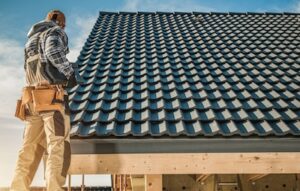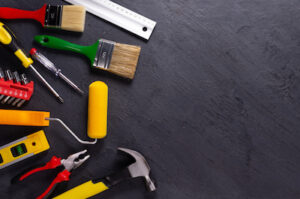Home Upgrade Checklist: Don’t Miss These Critical Steps
Your home is your sanctuary, haven, and your place of comfort. It’s where you create memories, spend time with loved ones, and unwind after a long day. However, your home may feel outdated, cramped, or need some TLC over time. That’s where home upgrades come in. As home upgrades can transform your living space, increase your home’s value, and enhance your quality of life. However, there are typically many things that you can upgrade in your home if it is not a newly built home, so it can be challenging to take on without a home upgrade checklist. So, what are the steps to follow when upgrading your home?
The critical steps to follow when upgrading your home are to evaluate your home’s current condition, set a realistic budget, and plan out your upgrades strategically. Then you must consider what things in your home need and benefit the most from upgrading.
So, now that you have an idea of what steps to follow let’s take a closer look at these key steps. As this article will cover the essential information you shouldn’t miss when upgrading your home. By following these steps, you can ensure that your home upgrade project is a success, and you can enjoy your improved living space for years to come. So let’s dive in and explore the essential steps you should follow when beginning home improvement.
1. Evaluate Your Home’s Current Condition
Before starting any home upgrade project, it’s crucial to evaluate the current condition of your home. This assessment will help you determine which areas of your house need the most attention. For instance, inspecting the foundation can help detect issues like cracks, shifting, or settling, leading to more severe problems in the future. Similarly, evaluating the roof’s condition is critical to identify leaks or missing shingles, which can cause water damage and affect your home’s structural integrity. Also, checking the electrical and HVAC systems can help avoid hazards like fires or carbon monoxide leaks.
Hiring a professional for this evaluation can ensure that all issues are identified and addressed before starting any home upgrade project. Moreover, it can help prevent costly repairs or renovations down the line. Therefore, it’s essential to prioritize having your home inspected and address any significant issues before embarking on your home upgrade journey.
2. Set a Realistic Budget
Setting a realistic budget for your renovation project is essential after assessing the state of your home. Consider all project-related costs, including supplies, labor, permits, and unforeseen charges. Putting your requirements before your unnecessary needs is crucial to sticking to your budget. Also, it’s essential to consider your upgrading project’s possible ROI. For instance, compared to other modifications, kitchen, and bathroom renovations often give better returns.
To obtain an accurate cost estimate, speaking with experts or contractors is advisable. Consider saving some additional money as well for unforeseen costs that can occur while working on the project.
3. Plan Your Upgrades Strategically
It’s crucial to strategically plan your upgrades to get the most out of your investment. Start by improving the areas that increase the value of your property. This may include renovating the kitchen or installing a new bathroom. These improvements will probably draw buyers and raise the value of your home.
Yet, if you’re improving your house for your pleasure, pay attention to changes that showcase your tastes and preferences. Moreover, remember that your HOA may need permits for or approve certain upgrades. For instance, your local building department may require a permit if you intend to add a new room or make significant changes to the construction of your home. Before beginning your upgrading project, it is imperative to do your study on the rules and laws in your locality.
Once you’ve planned and set a budget for your home upgrade, it’s crucial to consider essential factors that can affect the project’s outcome. So, continue reading the explore the fundamental elements.

Things To Consider When Upgrading Your Home
1. Consider Pest Control
Pest control is often overlooked when upgrading a home, leading to severe property damage and increased health risks. According to the National Pest Management Association (NPMA), termites cause over $5 billion in property damage in the US annually. Therefore, it’s essential to get your home inspected by professionals and consider local experts. To find one, search online with “pest control recommendations close by” or “local pest control.” Local experts have profound knowledge of local regulations and guidelines for pest control, which can help ensure compliance with the law. Additionally, local pest control companies often have a better understanding of the unique environmental factors and conditions that can contribute to pest infestations in your region. This will allow them to provide more targeted and practical solutions to stop further infestation.
Additionally, some pest control companies offer eco-friendly and pet-safe pest control solutions that can effectively eradicate pests without harming the environment or your pets. But before finalizing, research and compare different pest control companies to find the one that best suits your needs and budget.
2. Clean Sewage and Pipes
Cleaning sewage is essential for maintaining a healthy and functional home. Clogged gutters can cause water damage to your roof and foundation, while blocked sewage lines can lead to overflow, backups, and unpleasant odors. According to the Environmental Protection Agency (EPA), sewer overflows can lead to the contamination of water resources and pose significant health risks to humans and wildlife.
Remove debris with a scoop or trowel to clean gutters, and rinse with a hose. Consider installing gutter guards to prevent future build-up. Use a plumbing snake or hydro jet to remove blockages for sewage lines. Regular maintenance is vital to avoid costly repairs. Clean gutters twice a year, and have your sewage lines inspected and cleaned by a professional every 1-2 years. Be mindful of what you put down your drains, and avoid flushing non-biodegradable materials.
3. Invest in Quality Upgradation Material in Roofing
Choosing suitable materials is one of the most critical factors in ensuring a successful roofing upgrade project. Consider the materials’ durability, functionality, aesthetic appeal, and environmental impact.
High-quality roofing materials such as metal, slate, and tile can withstand extreme weather conditions and provide better insulation, resulting in lower energy costs. These materials also offer better resistance against pests, mold, and fire damage, providing a safer environment for your home or business. Additionally, investing in quality roofing materials can increase the overall value of your property. Thus, investing in quality upgrading material in roofing is crucial for the durability and longevity of your roof.

4. Don’t Forget About Lighting
Lighting is a crucial element in any home upgrade project, but it needs to be noticed. Updating or adding new lighting fixtures can enhance the overall ambiance of a room and make it more functional. Good lighting can improve mood, increase productivity and help with tasks like reading, cooking, or working.
LED lights are a popular choice as they are energy-efficient and last longer than traditional bulbs. You can also consider smart lighting systems that allow you to control the lighting with your phone or voice commands. In addition to functional lighting, you can add decorative lightings like table lamps, floor lamps, or pendant lights to create a focal point in the room. Remember, outdoor lighting can enhance your home’s curb appeal and provide added security.
In Closing
Upgrading your home can be a rewarding experience if you do it right. By following these critical steps, you can ensure that your home upgrade project succeeds. Remember post-upgrade tasks such as cleaning and maintenance to ensure your home stays in top condition.
With careful planning and attention to detail, your home upgrade project can succeed and add value to your home. Good luck with your home upgrade project!

